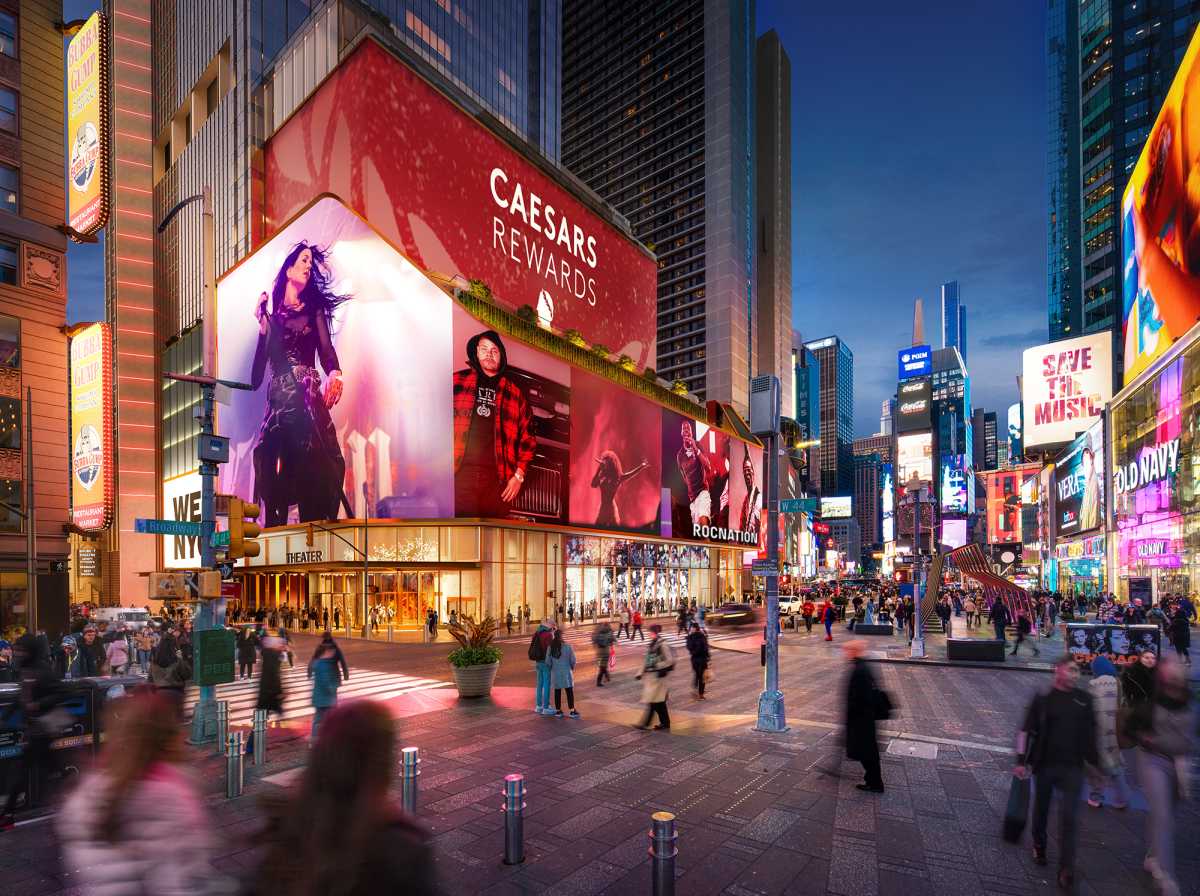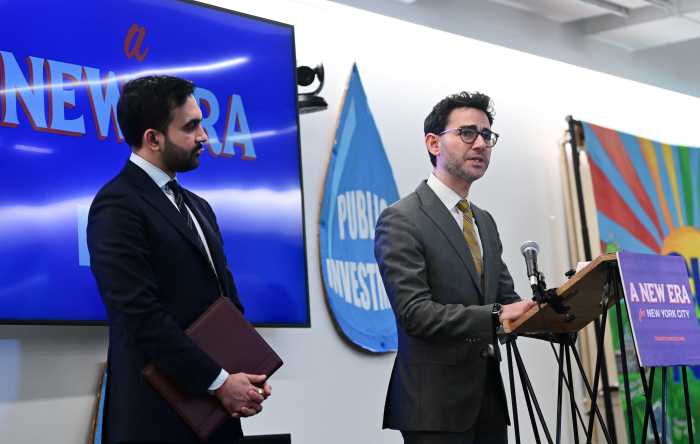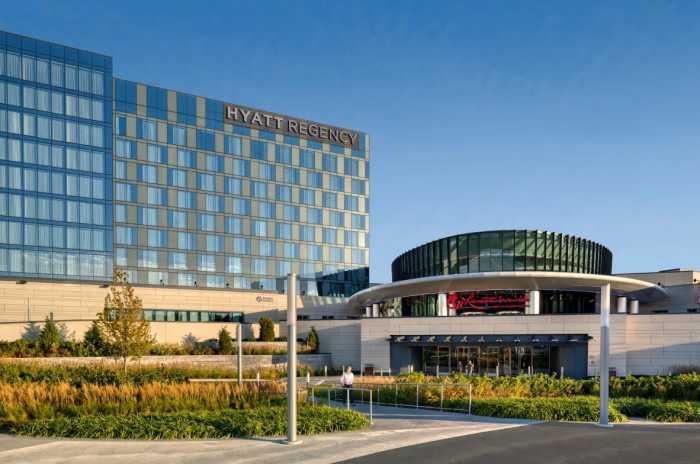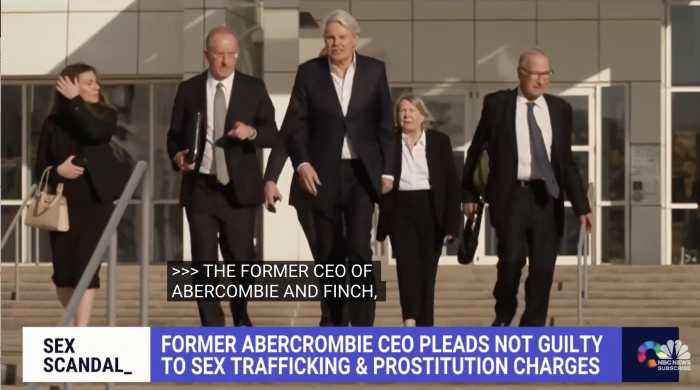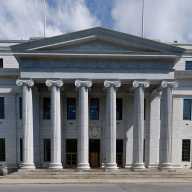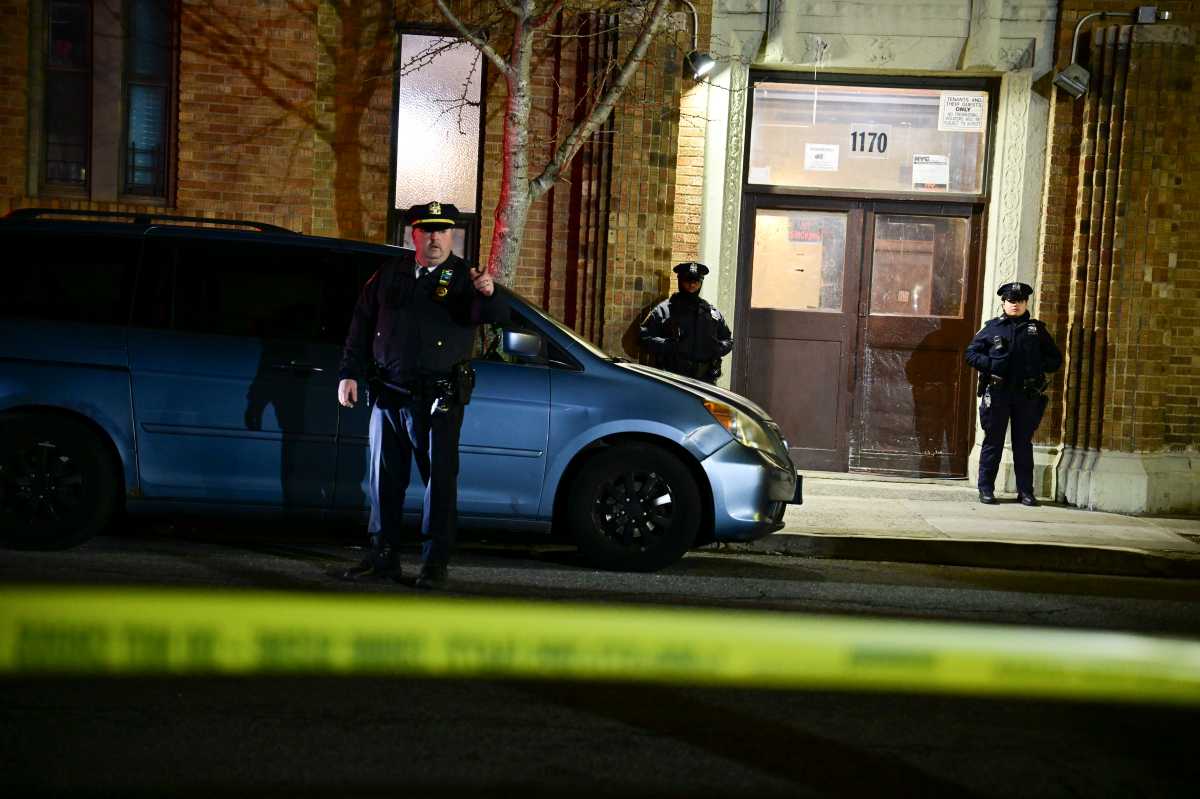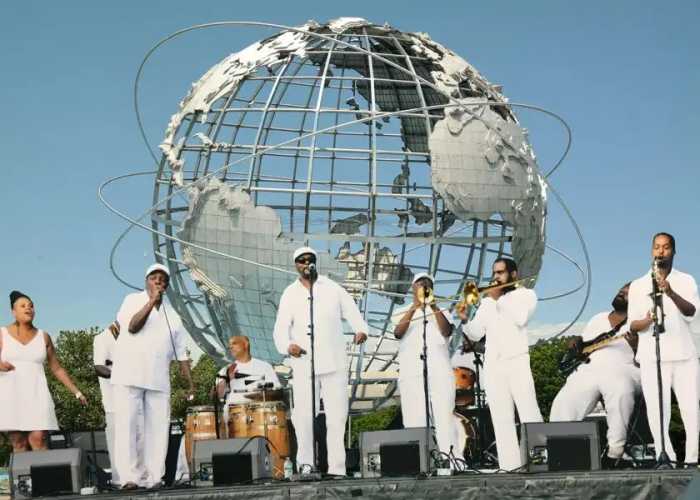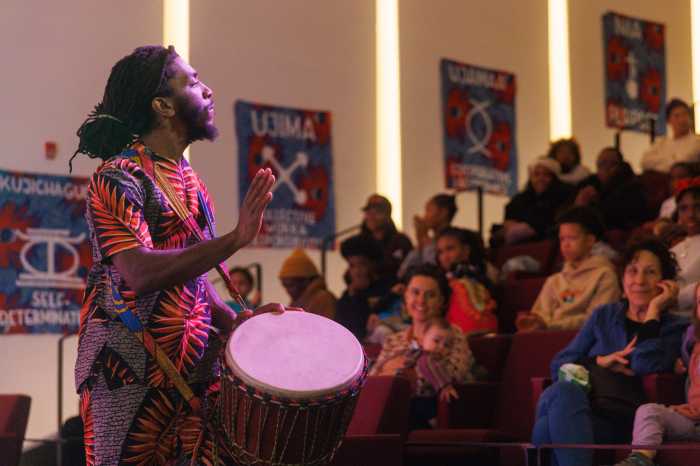The team behind the Caesars Palace Times Square casino proposal is ready to launch a $250 million neighborhood investment plan to support the Midtown and Hell’s Kitchen communities if they win a license to operate, amNewYork Metro learned in an exclusive interview Tuesday.
The plan — which will come to life if Caesars gets the bid to build in the world-famous area — includes a variety of projects designed to improve the local environment — including an extensive composting initiative, hundreds of new street trees and more sanitation to keep local streets and sidewalks clean, to start.
The casino proposal is a joint bid between Caesars Entertainment, SL Green and entertainment company Roc Nation, which was founded by rapper Jay-Z. The business trio is one of several developers vying for three available gaming licenses in the NYC metro area.
Brett Herschenfeld, executive vice president at SL Green, said a Caesars Palace Times Square win will come with a bevy of wins for the surrounding communities, especially for residents who will not lose any park space and small business owners who will serve more diners at their restaurants and more customers in their shops.
“With a project of this scale comes enormous responsibility to our neighborhood and community. We want everyone around us to win if we win,” Herschenfeld said. “I’m not just talking about big businesses. We need to bring benefits to the restaurants, the small mom-and-pop restaurant businesses, and we need to bring benefits to the residents. They are the lifeblood of Times Square.”
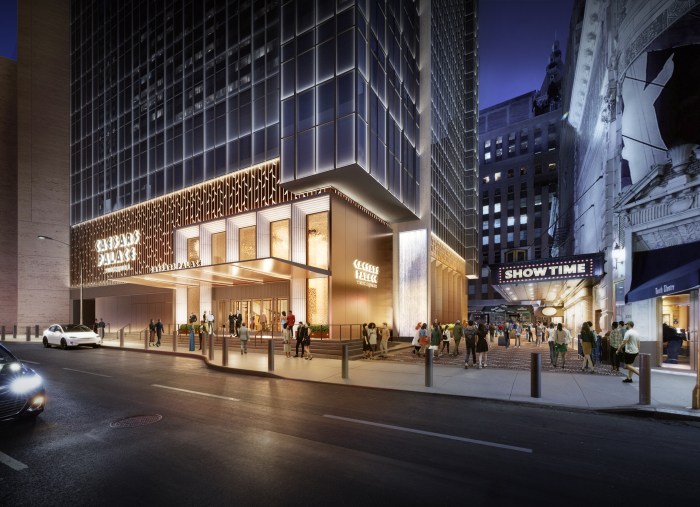
Sanitation and beautification: priorities for Hell’s Kitchen residents
For the previous three years, Herschenfeld explained, his team has been delving into local neighborhoods including Hell’s Kitchen and asking New Yorkers what they would want from Caesars if the casino is awarded a license.
“One of those benefits is the Doe Fund, which is sanitation, and helping to make the side streets of Hell’s Kitchen cleaner than any other neighborhood in New York,” he said.
Caesars Palace Times Square partnered with the Doe Fund, a nonprofit focused on ending homelessness and providing job opportunities for marginalized communities, to create a team to supplement the NYC Department of Sanitation efforts. The crew would sweep sidewalks, change and replace filled litter baskets, remove cigarette butts and debris from sidewalks and tree beds, as well as scrub and remove unwanted graffiti and stickers.
Jennifer Mitchell, president and CEO of the Doe Fund, said her organization is “thrilled” for the potential partnership with the bidders.
“The Doe Fund’s Ready, Willing & Able program connects individuals experiencing homelessness to careers and permanent housing through a comprehensive approach that combines paid transitional work experience, transitional housing, workforce development, and other support services,” Mitchell said. “We are thrilled for a potential partnership to provide economic opportunity to even more New Yorkers, while beautifying Hell’s Kitchen.”
From his work in speaking with the community, Herschenfeld was reminded that New Yorkers love green space. But in busy Times Square and Hell’s Kitchen, park, shade and trees are not always a stone’s throw away.
“I learned that in Hell’s Kitchen, the outdoor space is limited,” he said. “There is not a lot of park space. Trees, tree beds and keeping them clean is important for the people who live here.”
Thus, improving the ecology of bustling Hell’s Kitchen and Midtown became one of Herschenfeld’s environmental priorities. His bidding team partnered with the Lower East Side Ecology Center to support area composting, an environmental practice that faced city funding cuts at a community compost center in Matthews-Palmer Park, Hell’s Kitchen, last year.
While NYC Council Member Erik Bottcher (D-Manhattan) advocated for the composting site, which likely helped it stay open, people at the Lower East Side Ecology Center, which has food scrap drop-off sites throughout Midtown and Lower Manhattan, said the Caesars Palace support will give the organization “more financial stability” to expand the environmental program.
“I want to thank our council member, Erik Bottcher, for securing funding for the Hell’s Kitchen Community Compost Center at Mathews-Palmer Park and saving it from closure,” said Christine Datz-Romero, executive director of the organization. “Now, this new partnership with the Caesars Palace Times Square team will provide us with more financial stability for our programming and allow us to expand our community composting and tree planting in Hell’s Kitchen. We’re thankful for their support and commitment to a more sustainable, resilient and connected New York City.”
The funding will help enable composting operations at the park, as well as at Manhattan Plaza, to continue and thrive.
Times Square is just one of at least nine metro-area locations being considered for three available casino licenses in the coming years. Caesars, if awarded one of the licenses, would convert an existing 54-story office building at 1515 Broadway, between W. 44 to W. 45 Streets, into a full-fledged casino.
Right now, all casino bidders are in the early stages of the licensing process, which is conducted by the state and includes an extensive series of approvals.
That approval process is off to a winning start for developers as the NYC Council made zoning changes in April that would legalize casinos in certain parts of the Big Apple.
Despite widespread opposition from communities and some elected officials across the city, the council passed the Gaming Facility Text Amendment, which NYC Mayor Eric Adams’ administration introduced last year in collaboration with the council leadership.
Top reasons for casino opposition center mostly around crime and congestion.
Herschenfeld said that although his team’s multi-million-dollar neighborhood investment plan is contingent on whether or not they get the green light to build, they will get to work on the community commitments right away.
“I’m starting the investment the day I win the license. I’m not waiting until we open for business,” he said. “I will start making those investments in the community the second I win that license.”
Read More: https://www.amny.com/business-finance/



